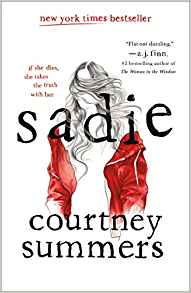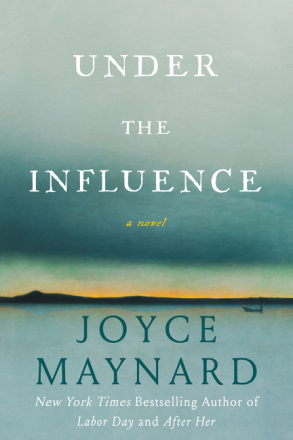Versailles: A Novel
- By Kathryn Davis
- Graywolf Press
- 224 pp.
- Reviewed by Willem Marx
- December 26, 2024
Marie Antoinette plays ephemeral cipher in this brilliantly bewitching tale.

France’s most famous queen was an Austrian who married Louis XVI, a king ominously dubbed “Louis the Last” during his lifetime. Of course, that queen was Marie Antoinette, the ostensible subject of Versailles, Kathryn Davis’ fifth novel, recently reissued by Graywolf Press.
Antoinette led a life of contradictions: She was a 14-year-old girl when she was sent from Vienna to Versailles to marry a French prince, a teenager himself who would’ve preferred being a locksmith. As a princess, and even as a queen, Antoinette was a pawn in the negotiations of two kingdoms at the bitter end of monarchical rule in Europe. She was both uniquely loved and reviled in her time and became the symbol of 18th-century France’s otherworldly pomp, though she never drank alcohol and enjoyed milking cows and drinking milk fresh from the pail. And while that famous line about eating cake is apocryphal, a starving, inflamed France sentenced her to death nonetheless.
The high drama and tragedy of Antoinette are almost unavoidable, yet Versailles goes to great lengths to tell a different story — one that’s as easy to sum up as it is to gather thin shards of glass off a kitchen floor. Versailles is a novel of overlapping fragments that create a portrait of a person, a place, and a time all wrapped in one.
It proceeds with the warren-like logic of its namesake, categorically ejecting the possibility of a single perspective or plot. Veering from introspective monologues to architectural ruminations on the palace, the book transforms the palace itself into a confounding series of metaphors. Versailles is France and, at the same time, Antoinette. Versailles is real, constructed of brick and mortar on swampy ground, but it is also a fantasy. The narrative takes shape in the slits of truth between these statements.
Versailles begins with a voice that speaks from nowhere. “My soul is going on a trip. I want to talk about her. Why would anyone want to talk about anything else?” That intelligent, haughty tone, that tendency to speak about oneself in the third person, and the incorporeal subject spill across the pages given over to Antoinette. These skip through time, flitting from her first carriage-ride to France — “Twenty thousand horses stabled along the road…Each night we managed to consume 150 chickens, 270 pounds of beef, 220 pounds of veal, 55 pounds of bacon, 50 pigeons, 300 eggs” — to surreal hairdressing sessions, “One day Léonard made me Minerva. One day he made me an English garden with lawns, hills, and streams. One day he made me the world.” But life isn’t always so extravagant. There are walks in the forests and grounds of Versailles, discussions with handsome woodsmen, reflections on politics, and, later, scenes from prison.
Like a great actor, Antoinette is alive and surprising in each moment. There are neither the traditional cliches of victimhood nor of privilege. She’s aware of the world she exists in and simply makes do. She is not the naive, lonesome beauty of Sofia Coppola’s film “Antoinette,” nor the manipulative nymphomaniac that 18th-century pamphleteers made her out to be. She’s witty at times, resigned at others; world-weary and honest; she acknowledges her desires and her reality without shame.
These qualities are thrilling, particularly when applied to the costume-drama excesses of historical fiction. Antoinette is extraordinarily grounded, preternaturally sincere — qualities that pop in Davis’ sharp, poetic language. Of a childhood tutor who implores her to stop dancing, Antoinette says it’s as if “he actually believed that to be light of heart is the same as being light of head.” Later, she reflects:
“Every life has a shape. Even the lives of dogs, though they’re born embodying theirs, unlike humans…Of course death is never a coordinate, not for humans at least. Which is why it’s wrong to say that a life gets cut short.”
In such exquisite lines, Antoinette seems wizened, ghostly, gazing in retrospect on a life already lived. Perhaps that is the secret behind her uncommon sensibilities.
Interspersing Antoinette’s mercurial voice are numerous other perspectives and styles. Chapters explore architecture and design, the history of the palace and the kings who built it. Bursts of playwriting change the texture entirely while dramatizing subtle intrigues of the time. In this, Versailles is textbook-like, naming and defining everything. Stairways, groundskeepers, and senators are all given their own space. Coupled with the wandering, plotless perspective, this has a disorienting effect — without a meaningful degree of background knowledge and concentration, it’s easy for portions of the book to blur. Versailles is the kind of novel that will rear up and shake you off its back if given half a chance.
But don’t be dissuaded. What emerges out of the tonal shifts, sharp contrasts, and rich milieu is a shockingly raw, unabashed take on a cliche-mired story. Versailles the place is a human creation, beautiful and cruel, hale and sickly. It’s a frustrating contradiction, a dreamscape conjured from the basic materials. The Antoinette of this novel grasps that intuitively. Her voice, wherever it is coming from, is of one who knows that death and life, greed and poverty, beauty and horror all live side by side.
When Antoinette, Louis, and their two children are hauled off to Paris and imprisoned, one of the novel’s nameless voices asks, “Yet why should it be sad, the end of privilege? Why should it be sad that Marie Antoinette never sees the Trianon again, except for the fact that it’s always sad when anything ends forever.” It shouldn’t be sad but it is. Likewise, enormous palaces shouldn’t exist, but they do. And this devastatingly intelligent, complex novel shouldn’t be wonderful, but it is.
Willem Marx is a contributing editor at Electric Literature, assistant fiction editor at Asymptote, and an NYC Midnight judge. His writing can be found in Necessary Fiction, Publishers Weekly, and elsewhere.

